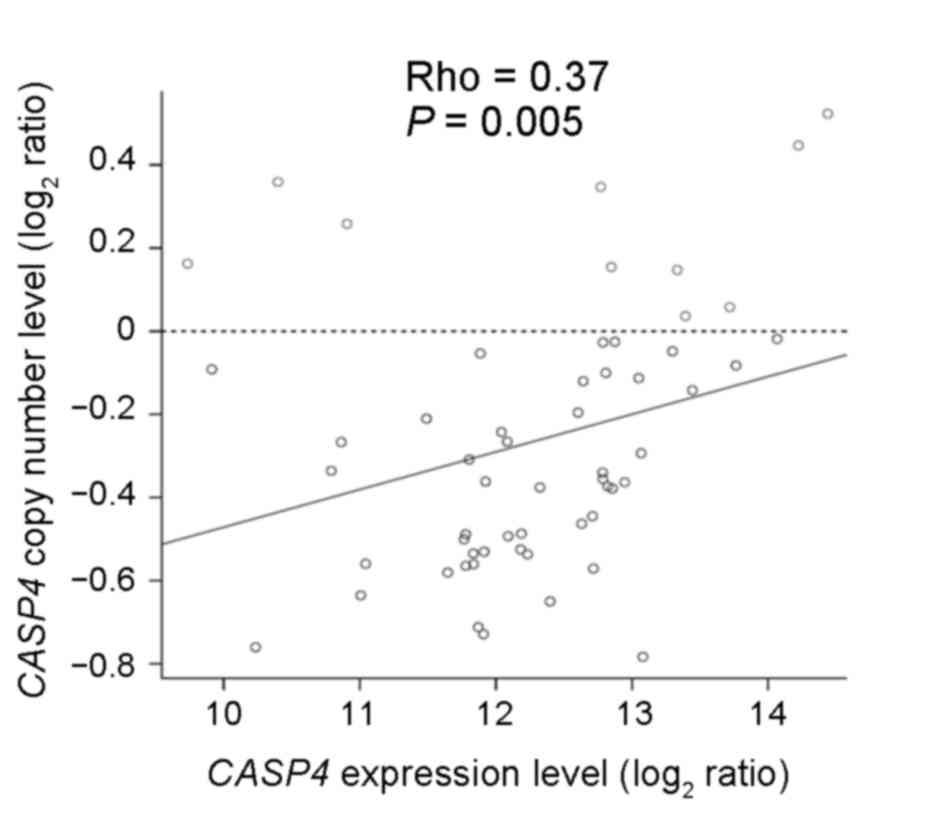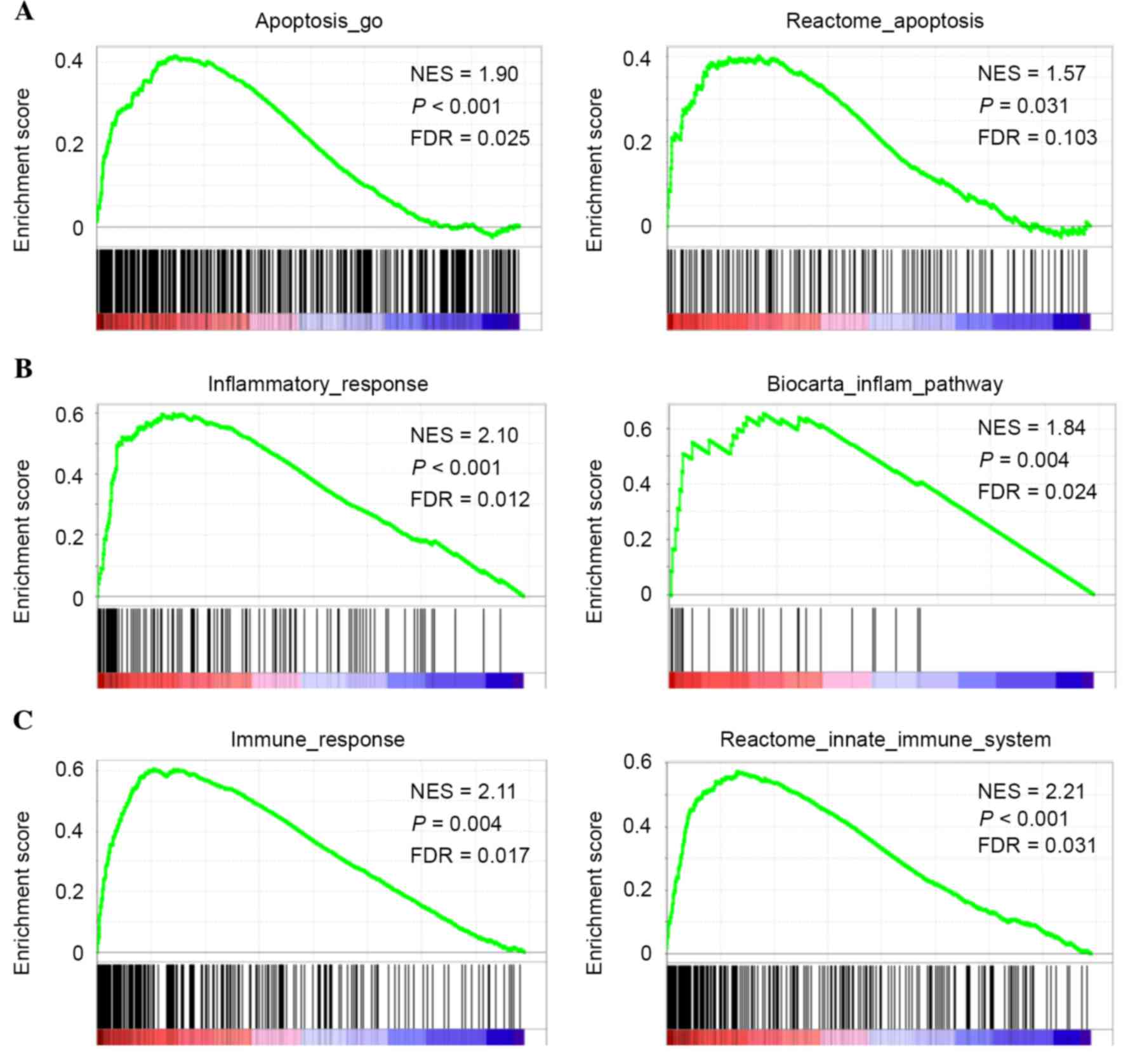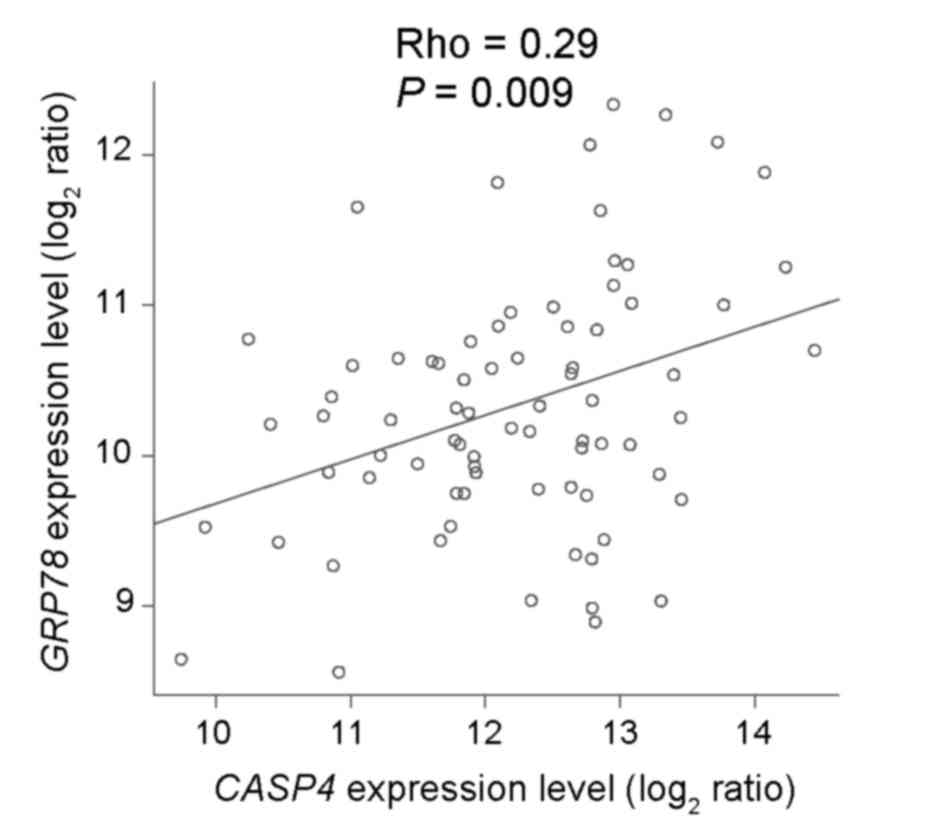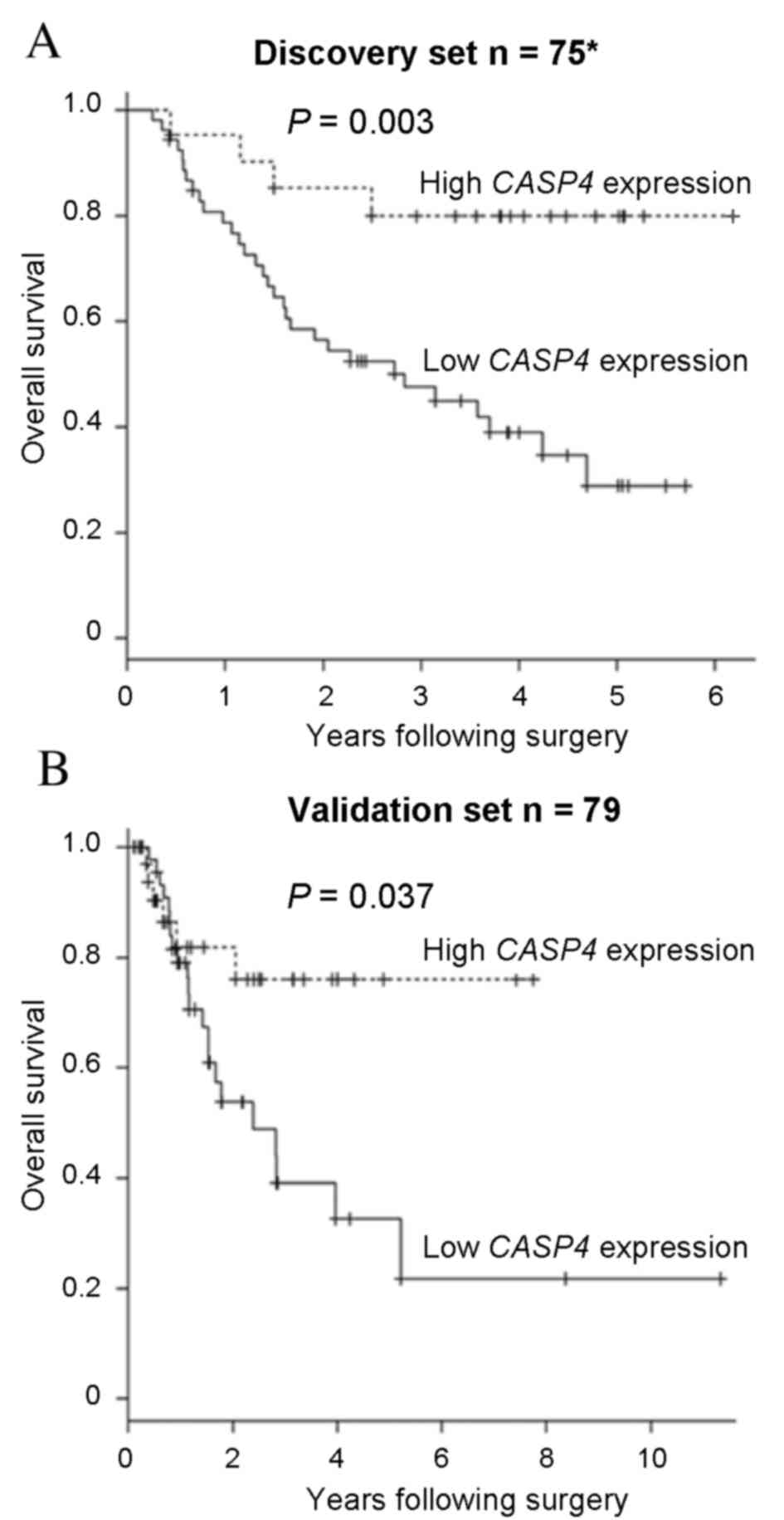|
1
|
Kuwano H, Nishimura Y, Oyama T, Kato H,
Kitagawa Y, Kusano M, Shimada H, Takiuchi H, Toh Y, Doki Y, et al:
Guidelines for diagnosis and treatment of carcinoma of the
esophagus April 2012 edited by the Japan Esophageal Society.
Esophagus. 12:1–30. 2015. View Article : Google Scholar : PubMed/NCBI
|
|
2
|
Enzinger PC and Mayer RJ: Esophageal
cancer. N Engl J Med. 349:2241–2252. 2003. View Article : Google Scholar : PubMed/NCBI
|
|
3
|
Solomon E, Borrow J and Goddard AD:
Chromosome aberrations and cancer. Science. 254:1153–1160. 1991.
View Article : Google Scholar : PubMed/NCBI
|
|
4
|
Yan M, Parker BA, Schwab R and Kurzrock R:
HER2 aberrations in cancer: Implications for therapy. Cancer Treat
Rev. 40:770–780. 2014. View Article : Google Scholar : PubMed/NCBI
|
|
5
|
Sawada G, Niida A, Hirata H, Komatsu H,
Uchi R, Shimamura T, Takahashi Y, Kurashige J, Matsumura T, Ueo H,
et al: An integrative analysis to identify driver genes in
esophageal squamous cell carcinoma. PLoS One. 10:e01398082015.
View Article : Google Scholar : PubMed/NCBI
|
|
6
|
Hu N, Wang C, Ng D, Clifford R, Yang HH,
Tang ZZ, Wang QH, Han XY, Giffen C, Goldstein AM, et al: Genomic
characterization of esophageal squamous cell carcinoma from a
high-risk population in China. Cancer Res. 69:5908–5917. 2009.
View Article : Google Scholar : PubMed/NCBI
|
|
7
|
Shi ZZ, Shang L, Jiang YY, Hao JJ, Zhang
Y, Zhang TT, Lin DC, Liu SG, Wang BS, Gong T, et al: Consistent and
differential genetic aberrations between esophageal dysplasia and
squamous cell carcinoma detected by array comparative genomic
hybridization. Clin Cancer Res. 19:5867–5878. 2013. View Article : Google Scholar : PubMed/NCBI
|
|
8
|
McIlwain DR, Berger T and Mak TW: Caspase
functions in cell death and disease. Cold Spring Harb Perspect
Biol. 5:a0086562013. View Article : Google Scholar : PubMed/NCBI
|
|
9
|
Hitomi J, Katayama T, Eguchi Y, Kudo T,
Taniguchi M, Koyama Y, Manabe T, Yamagishi S, Bando Y, Imaizumi K,
et al: Involvement of caspase-4 in endoplasmic reticulum
stress-induced apoptosis and Abeta-induced cell death. J Cell Biol.
165:347–356. 2004. View Article : Google Scholar : PubMed/NCBI
|
|
10
|
Moorwood C and Barton ER: Caspase-12
ablation preserves muscle function in the mdx mouse. Hum Mol Genet.
23:5325–5341. 2014. View Article : Google Scholar : PubMed/NCBI
|
|
11
|
Bian ZM, Elner SG and Elner VM: Dual
involvement of caspase-4 in inflammatory and ER stress-induced
apoptotic responses in human retinal pigment epithelial cells.
Invest Ophthalmol Vis Sci. 50:6006–6014. 2009. View Article : Google Scholar : PubMed/NCBI
|
|
12
|
Philchenkov A, Zavelevich M, Kroczak TJ
and Los M: Caspases and cancer: Mechanisms of inactivation and new
treatment modalities. Exp Oncol. 26:82–97. 2004.PubMed/NCBI
|
|
13
|
Li H, Wang J, Zeng Z, Fu X and Zhang W:
Expression and correlation of apoptosis-related gene c-IAP2 and
caspase-4 in head and cervical undifferentiation squamous cell
carcinoma. Lin Chuang Er Bi Yan Hou Ke Za Zhi. 17:739–741. 2003.(In
Chinese). PubMed/NCBI
|
|
14
|
Li H, Zeng ZH, Wang LH and Wang JQ:
Expression and correlation of apoptosis-related gene c-IAP2 and
caspase-4 in sinonasal squamous carcinoma. Zhonghua Er Bi Yan Hou
Ke Za Zhi. 39:324–327. 2004.(In Chinese). PubMed/NCBI
|
|
15
|
Soung YH, Jeong EG, Ahn CH, Kim SS, Song
SY, Yoo NJ and Lee SH: Mutational analysis of caspase 1, 4, and 5
genes in common human cancers. Hum Pathol. 39:895–900. 2008.
View Article : Google Scholar : PubMed/NCBI
|
|
16
|
Subramanian A, Tamayo P, Mootha VK,
Mukherjee S, Ebert BL, Gillette MA, Paulovich A, Pomeroy SL, Golub
TR, Lander ES and Mesirov JP: Gene set enrichment analysis: A
knowledge-based approach for interpreting genome-wide expression
profiles. Proc Natl Acad Sci USA. 102:15545–15550. 2005. View Article : Google Scholar : PubMed/NCBI
|
|
17
|
Moenner M, Pluquet O, Bouchecareilh M and
Chevet E: Integrated endoplasmic reticulum stress responses in
cancer. Cancer Res. 67:10631–10634. 2007. View Article : Google Scholar : PubMed/NCBI
|
|
18
|
Kobayashi T, Ogawa M, Sanada T, Mimuro H,
Kim M, Ashida H, Akakura R, Yoshida M, Kawalec M, Reichhart JM, et
al: The Shigella OspC3 effector inhibits caspase-4, antagonizes
inflammatory cell death, and promotes epithelial infection. Cell
Host Microbe. 13:570–583. 2013. View Article : Google Scholar : PubMed/NCBI
|


















